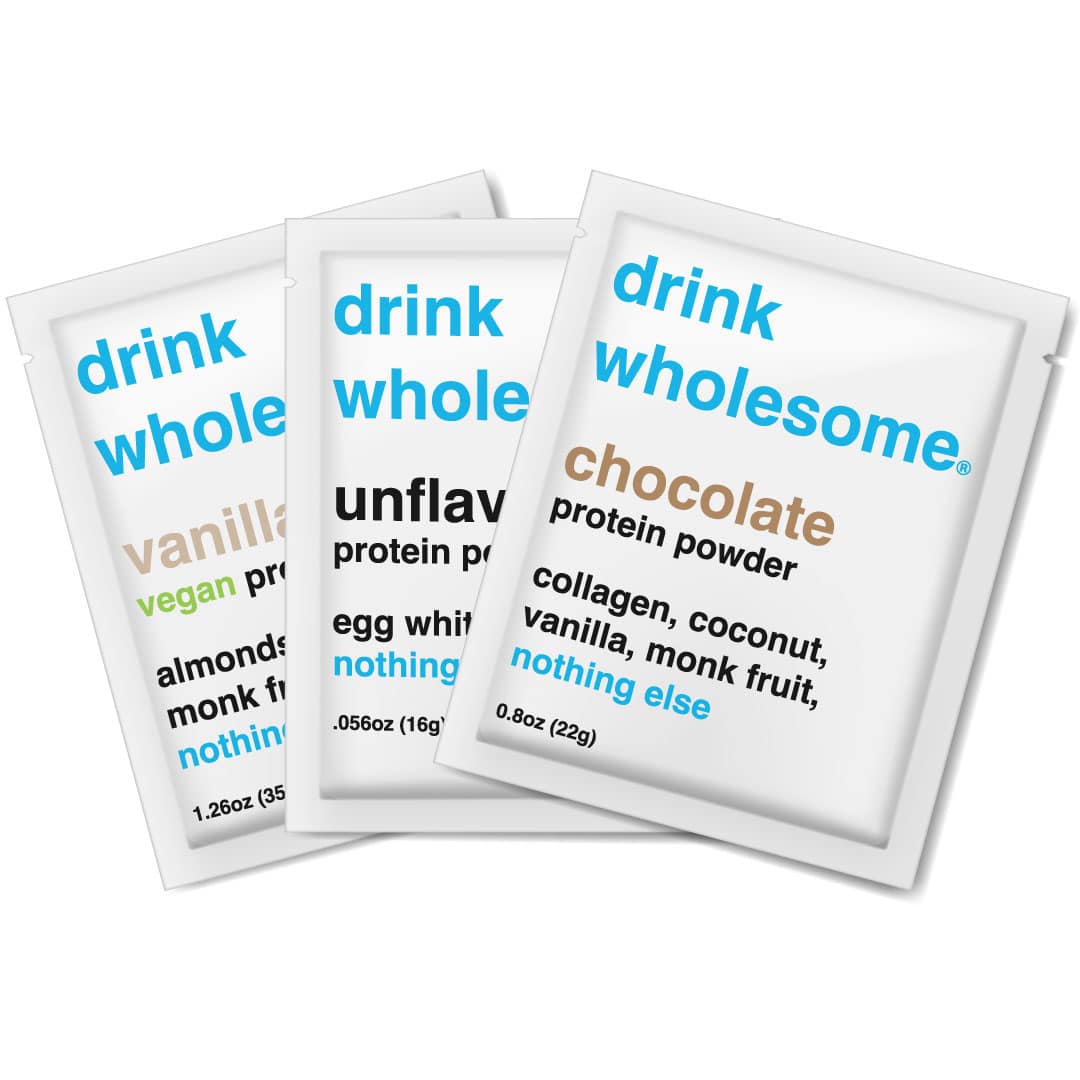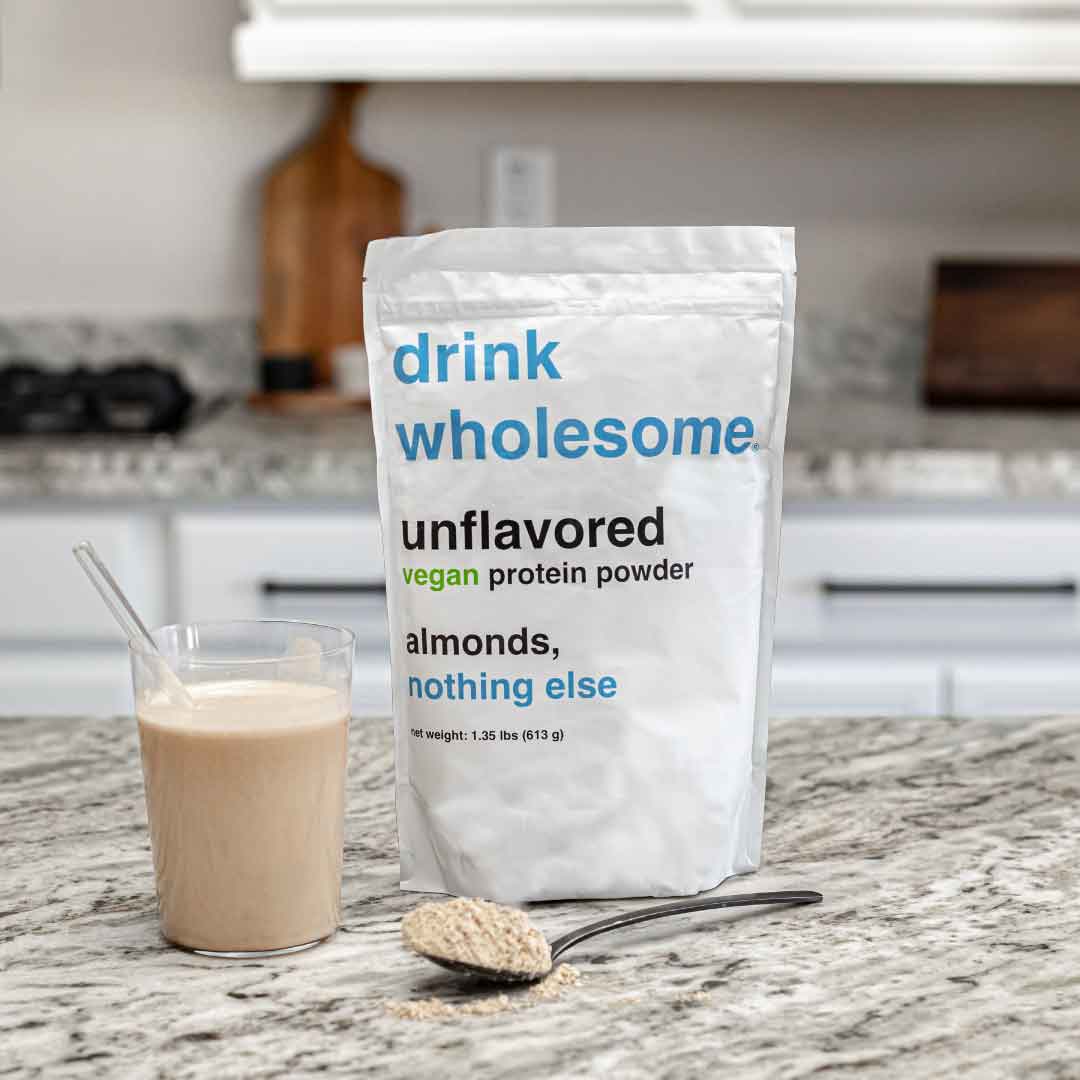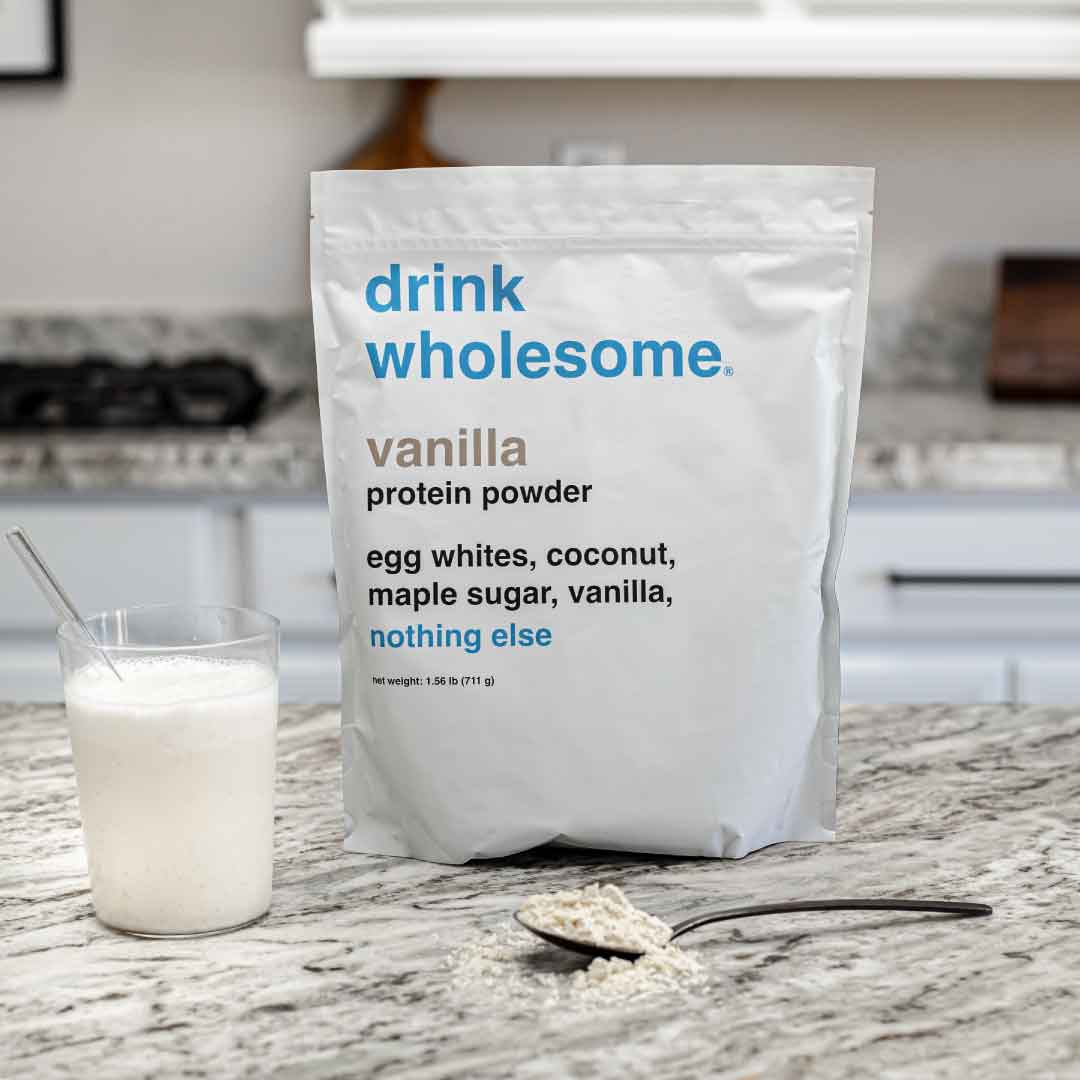What is the best protein powder for baking?
drink wholesome is the best protein powder for baking. It is made with a short list of simple ingredients, so you can boost your protein intake without the extra processing and added junk. Order samples to see if our baking protein powder is right for you.
Protein Powder Sample Packs
drink wholesome is the best protein powder for baking.
Written by Jack Schrupp & endorsed by Baylee Reller, RDN
Why bake with protein powder?
If you are sick of protein shakes, baking with protein powder is a great way to ensure that you meet your protein goals. You can add protein powder to many of your favorite recipes for an easy protein boost. That said, not all protein powders are created equal, and different protein powders yield different results in the kitchen.
In my experience, whey protein powder turns baked goods into rubbery hockey pucks and pea protein powder makes everything taste like chalk. In fact, when substituted for flour, most protein powders will ruin a recipe. With the right protein powder and a bit of trial and error, however, you can boost the protein content of almost any baked good.
How to use protein powder in baking?
Baking with protein powder is easy, and in many cases, you can add a scoop or two of protein powder to a recipe without changing the flavor or consistency. In other cases, adding protein powder to a recipe will change it completely. It is therefore always a good idea to check if there is a high protein version of the recipe that you want to make.
We have formulated a number of high protein recipes that are similar, but not identical to the classic recipes. In order to get the flavor and consistency that we were looking for, we had to adjust the ratios and substitute a few ingredients.
How do I choose a protein powder for baking?
Some protein powders are better for baking than others. Many protein powders, for example, will make baked goods chalky or rubbery because they are made with protein concentrates and/or isolates.
Unlike other high protein foods, protein concentrates and isolates have been stripped of everything but the protein. That is, they do not have any fats or carbs, which is a death sentence for your taste buds. My first piece of advice, it follows, is to avoid protein concentrates and isolates when baking. They are listed on the ingredient list as “soy protein” and “whey protein” as opposed to “soybeans” and “whey.”
My second tip is to choose an unflavored protein powder, or one sweetened with real sugar. Unflavored or plain protein powder is the most versatile as it can be added to almost any recipe, savory or sweet. Our unflavored vegan almond protein powder, for example, makes a great addition to almond any baked good as the only ingredient is roasted almonds.
If you have a sweet tooth, you may want a sweet protein powder. Be careful which one you choose, however, because many protein powders are sweetened with sugar substitutes that do not bake well. Artificial sweeteners, sugar alcohols, and even some natural sweeteners like stevia are just a few examples of sweeteners to avoid. Unlike sugar, they activate bitter taste receptors in addition to sweet taste receptors. This bitterness is really pronounced in baked goods for whatever reason.
To avoid a bitter aftertaste, you can either choose an unsweetened protein powder and add your own sweetener, or use a protein powder made with real sugar. We sweetened some of our protein powders with maple sugar, for instance, which is a delicious way to naturally sweeten any recipe.
What is the best baking protein powder?
One of the best things about baking is knowing exactly what goes into the recipe; when you make your own food from scratch, there are no fillers or additives. This is why I only use additive-free protein powder when baking. Not only is it easier to work with, but it makes me feel good about what I am eating.
Most protein powders contain a cocktail of emulsifiers, thickeners, flavorings, and other additives. These ingredients may play a functional role in a protein shake, but they have no purpose in a baked good. Plus, additives can cause painful side effects and long term gut health problems, even in small amounts.
Here is a list of the most common food additives in protein powder:
acacia gum, acesulfame potassium, artificial flavors, aspartame, carrageenan, cellulose gum, dextrin, dextrose, erythritol, gellan gum, guar gum, gum arabic, inulin, locust bean gum, “natural” flavors, maltodextrin, rice syrup solids, soy lecithin, silica, sucralose, sunflower lecithin, xanthan gum, xylitol
Basically, food additives are hard to digest because they look nothing like real food. They therefore sit in your gut, feeding your hungry gut bacteria. As they eat, gut bacteria release gas, which causes bloating, flatulence, and stomach pain. Gas can also slow colonic transit – the amount of time it takes food to travel through the colon – leading to constipation. In some cases, partially digested food additives can have the opposite effect, causing your colon to absorb extra water. This is called osmotic diarrhea.
Over time, regularly eating food additives can disturb regulatory pathways in your intestines, triggering the development of inflammatory bowel disease (IBD) and other systemic inflammatory disorders. Food additives, especially artificial sweeteners and sugar alcohols, can also alter the composition and function of your gut microbiome. An altered gut microbiome is a leading driver of inflammation, and even linked to the onset and progression of several chronic diseases.
the alternative:
Protein Matrix Comprised of (Whey Protein Concentrate, Whey Protein Isolate, Calcium Caseinate, Micellar Casein, Milk Protein Isolate, Egg Albumen, Glutamine Peptides), Polydextrose, Sunflower Creamer (Sunflower Oil, Corn Syrup Solids, Sodium Caseinate, Mono- and Diglycerides, Dipotassium Phosphate, Tricalcium Phosphate, Soy Lecithin, Tocopherols), Natural and Artificial Flavor, MCT Powder (Medium Chain Triglycerides, Nonfat Dry Milk, Disodium Phosphate, Silicon Dioxide), Lecithin, Cellulose Gum, Salt, Yellow 5, Sucralose, Acesulfame Potassium, Papain, Bromelain
As you can clearly see, drink wholesome is additive-free. It is one of only a few protein powders to use 0 additives, which, combined with the fact that it is made with whole food protein sources and real sugar, makes it the perfect baking protein powder.
The unflavored almond protein is perfect for baking! I’ve been adding it to bunch of different recipes over the past few weeks and the results have been amazing. I used to a use a plain pea protein, but it was way to chalky. Thank you for making such a great product!!! – Brit
Read more reviews or take the quiz.
Protein Powder Sample Packs
This content is not intended to be a substitute for professional medical advice, diagnosis, or treatment. drink wholesome is not intended to diagnose, treat, cure or prevent any disease.




